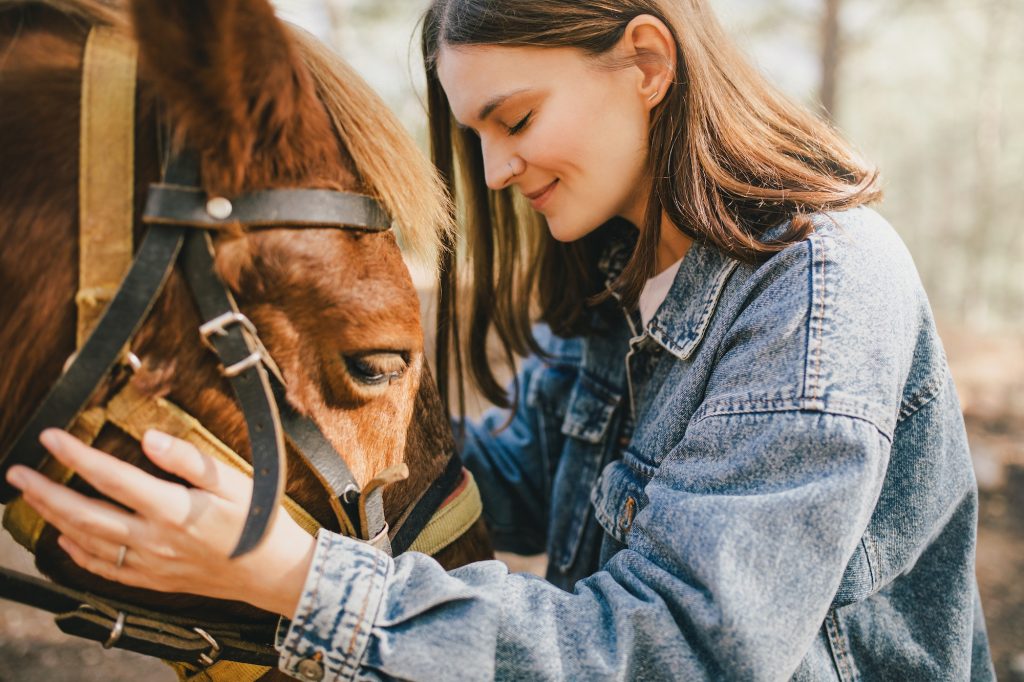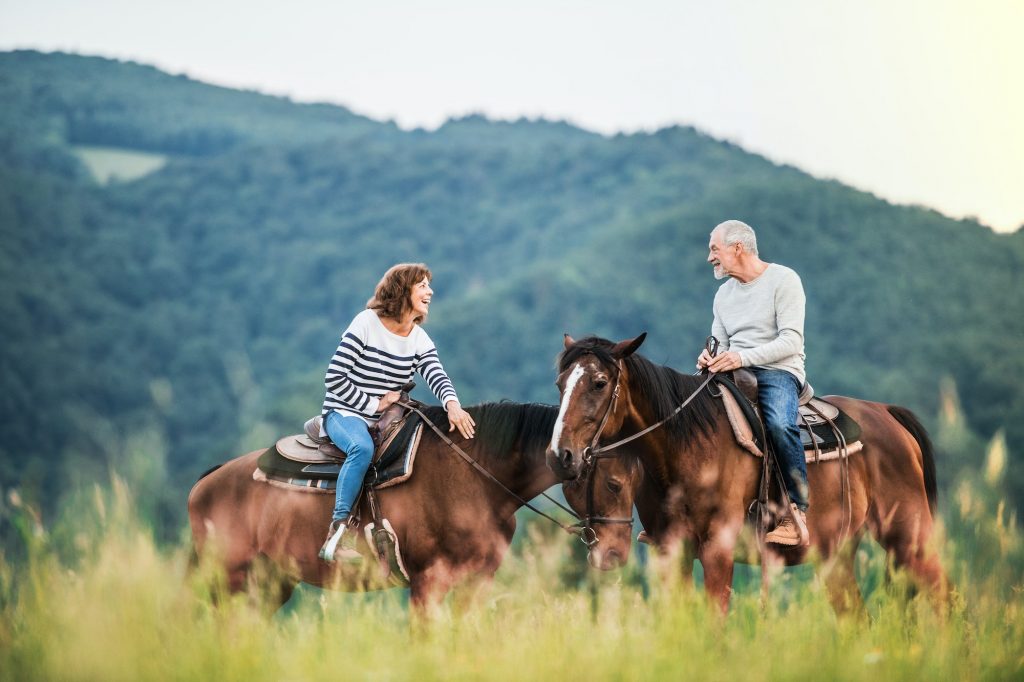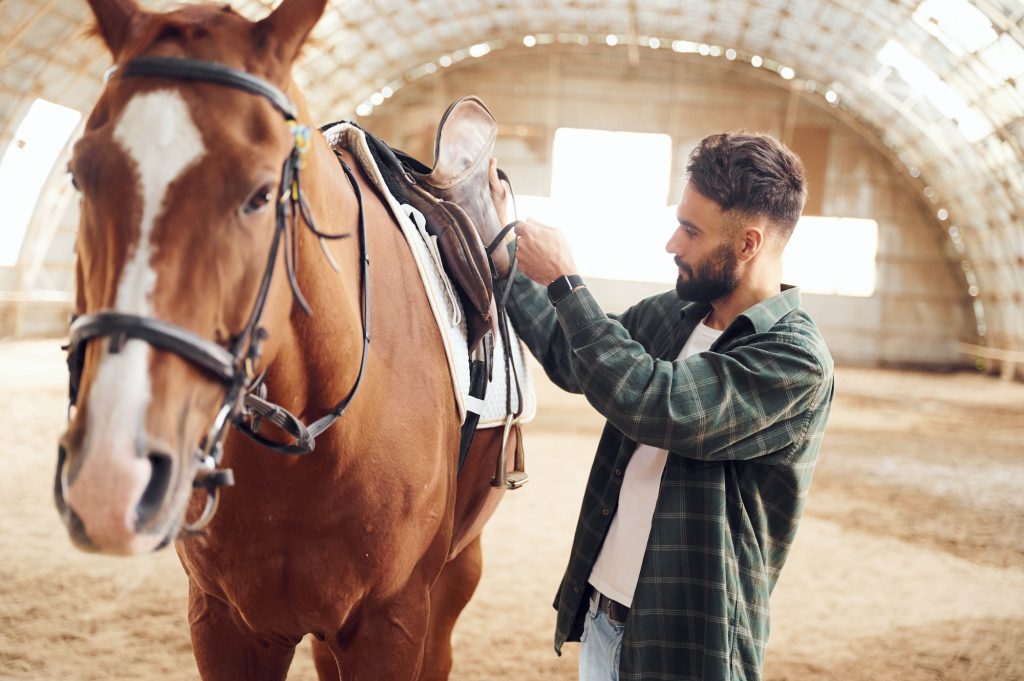Horse riding is an activity that has been enjoyed by people for thousands of years. From the ancient nomadic tribes to modern-day equestrians, the bond between humans and horses has always been strong. Not only is horse riding a fun and thrilling activity, but it also has numerous benefits for mental health and well-being. In this article, we will delve into the impact of horse riding on mental health and well-being and how it can help improve your overall quality of life.
The Benefits of Horse Riding for Mental Health
Horse riding is a form of therapy that has been found to have numerous benefits for mental health. For starters, horse riding provides a sense of calm and relaxation that can help relieve stress and anxiety. The rhythmic movement of the horse, combined with the fresh air and scenery, can help soothe and calm the mind.
Additionally, horse riding can also help improve self-esteem and confidence. When you’re riding a horse, you’re in control of your own movement, which can help boost self-confidence and self-esteem. The bond between the rider and the horse can also help foster a sense of trust and security, which is essential for good mental health.

How Horse Riding Can Improve Mental Well-Being
Horse riding is not just a fun activity; it can also help improve mental well-being in numerous ways. For starters, horse riding provides an opportunity to escape from the stresses of daily life and focus on something that is both calming and exhilarating. This can help reduce stress levels and promote a sense of well-being.
Furthermore, horse riding can also help improve physical health, which is essential for good mental health. When you’re riding a horse, you’re engaging in physical activity that can help improve your cardiovascular health, flexibility, and balance. This physical activity can also help boost endorphin levels, which can help improve mood and reduce feelings of anxiety and depression.
The Therapeutic Benefits of Horse Riding
Horse riding is not just a form of physical activity; it can also have therapeutic benefits. For example, horse riding therapy has been found to be effective in treating conditions such as depression, anxiety, and post-traumatic stress disorder (PTSD). Horse riding therapy involves a trained therapist working with a patient and a horse to help the patient overcome their mental health challenges.
Horse riding therapy can help patients learn new coping mechanisms, develop new skills, and improve their overall mental health. The bond between the patient and the horse can help the patient feel more secure and confident, which can help them overcome their mental health challenges.
The Benefits of Horse Riding for Children
Horse riding is not just for adults; it can also be beneficial for children. Horse riding can help children develop physical and mental skills that are essential for their growth and development. For example, horse riding can help children improve their balance, coordination, and strength.
Additionally, horse riding can also help children develop social and emotional skills. Horse riding can help children learn how to communicate and work with others, which is essential for their social and emotional development. Horse riding can also help children develop a sense of responsibility and self-confidence, which is essential for their overall well-being.

The Benefits of Horse Riding for Seniors
Horse riding is not just for children and young adults; it can also be beneficial for seniors. Horse riding can help seniors maintain their physical and mental health, which is essential for their overall well-being. For example, horse riding can help seniors maintain their balance, coordination, and strength.
Additionally, horse riding can also provide seniors with an opportunity to engage in physical activity that is low-impact and gentle on the joints. This can help reduce the risk of injury and promote better overall health and well-being.
Furthermore, horse riding can also provide seniors with an opportunity to socialize and connect with others. Horse riding can help seniors form new friendships and connect with other horse lovers, which can be beneficial for their mental health and well-being. Horse riding can also help seniors maintain a sense of independence and control, which can be important for their overall quality of life.

The Importance of Safety in Horse Riding
While horse riding can have numerous benefits for mental health and well-being, it is important to prioritize safety when engaging in this activity. Horse riding can be dangerous if proper safety precautions are not taken. It is important to wear protective gear, such as a helmet, and to follow all safety guidelines and procedures.
Additionally, it is important to work with a trained and experienced instructor when learning how to ride a horse. An experienced instructor can help ensure that you are riding correctly and safely, which can reduce the risk of injury. It is also important to match your skill level with the right horse, as some horses may be more suitable for experienced riders while others may be better suited for beginners.

Conclusion
In conclusion, horse riding can have numerous benefits for mental health and well-being. From reducing stress and anxiety to improving self-esteem and confidence, horse riding can help improve your overall quality of life. Additionally, horse riding can also provide therapeutic benefits, help children develop important skills, and help seniors maintain their physical and mental health. While horse riding can be dangerous if proper safety precautions are not taken, following safety guidelines and working with a trained instructor can help reduce the risk of injury.
FAQs
- Is horse riding safe?
Horse riding can be safe if proper safety precautions are taken. It is important to wear protective gear, such as a helmet, and to follow all safety guidelines and procedures. Additionally, it is important to work with a trained and experienced instructor when learning how to ride a horse.
- Can horse riding help with mental health issues?
Yes, horse riding can have numerous benefits for mental health. For example, horse riding can help reduce stress and anxiety, improve self-esteem and confidence, and provide therapeutic benefits for conditions such as depression, anxiety, and PTSD.
- Is horse riding suitable for children?
Yes, horse riding can be suitable for children. Horse riding can help children develop physical and mental skills that are essential for their growth and development. Additionally, horse riding can also help children develop social and emotional skills.
- Is horse riding suitable for seniors?
Yes, horse riding can be suitable for seniors. Horse riding can help seniors maintain their physical and mental health, which is essential for their overall well-being. Additionally, horse riding can also provide seniors with an opportunity to engage in physical activity that is low-impact and gentle on the joints.
- Do I need to have previous experience to start horse riding?
No, you do not need to have previous experience to start horse riding. However, it is important to work with a trained and experienced instructor when learning how to ride a horse. An experienced instructor can help ensure that you are riding correctly and safely, which can reduce the risk of injury.
